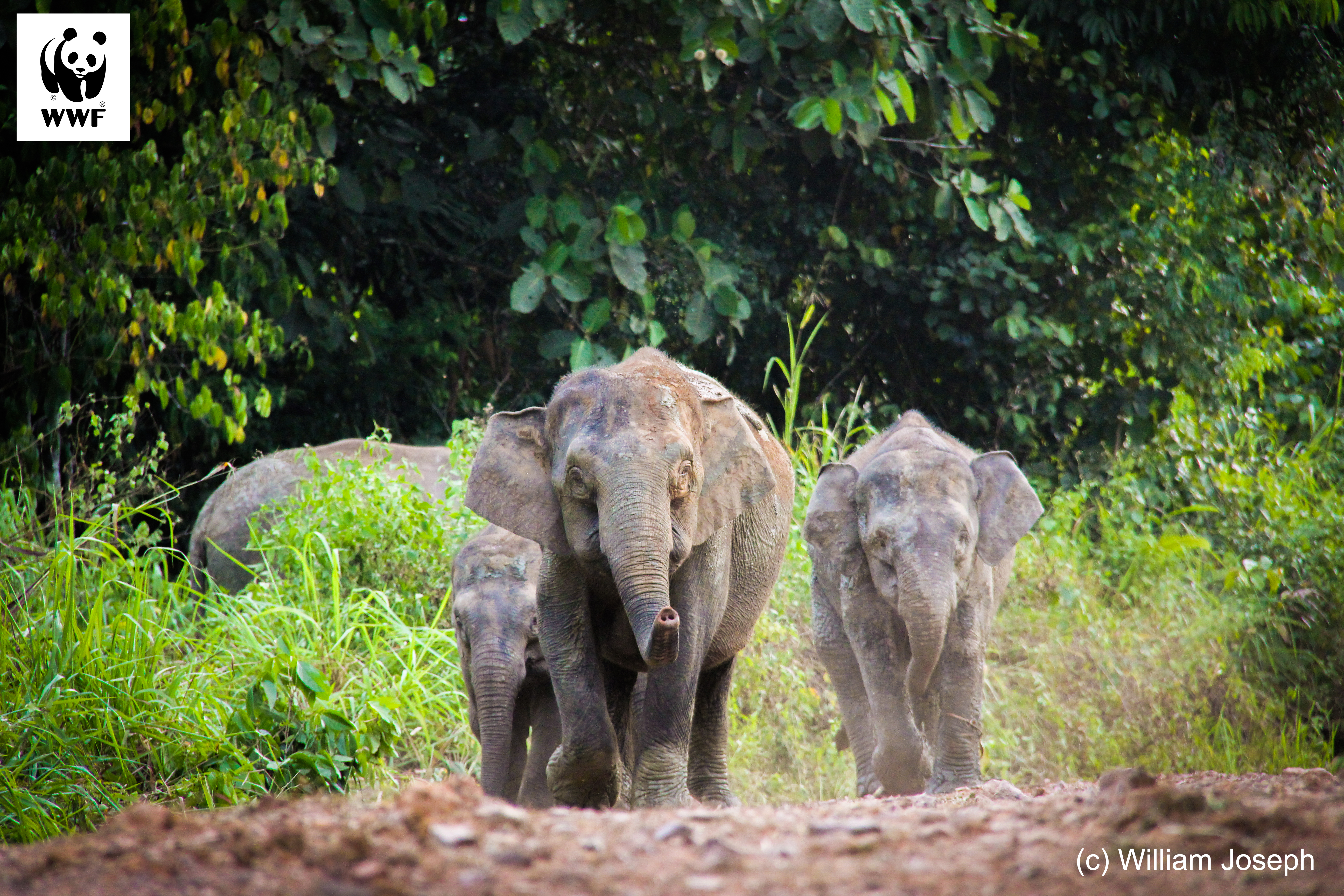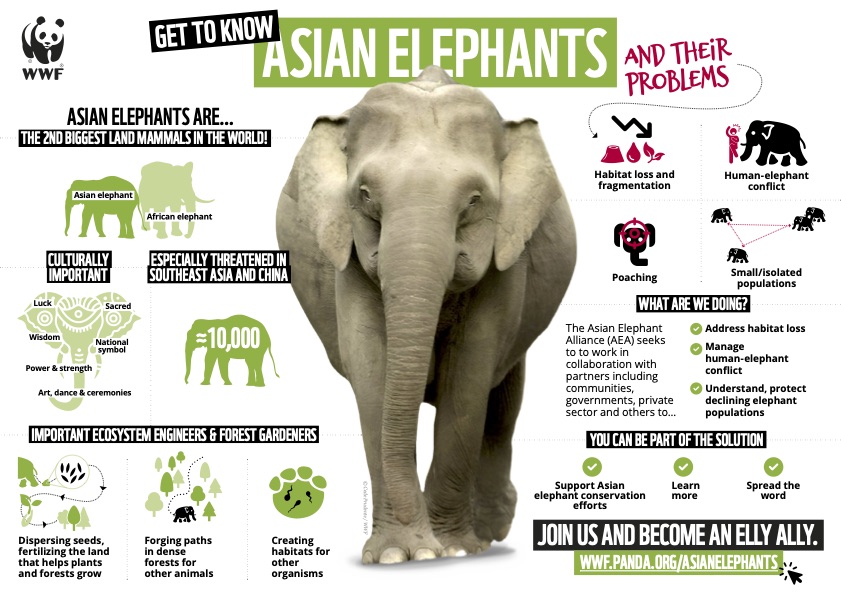The World Elephant Day as we know it today was founded in Thailand. Its purpose was to create a global awareness on the gentle giants and to help the public understand the challenges the elephants face in order to ensure the survival of their population well into the future.
Elephants can be divided into two distinct groups - African elephants and Asian elephants. They are separated by continents and are uniquely different from each other. However, both species face similar predicaments, they are looking at a future of increased threats due to unsustainable infrastructure development, poaching, illegal wildlife trade and human-elephant conflict.
In Sabah, we are custodians to the Bornean elephants - the easternmost population of the Asian elephant species, limited to the north-eastern region of Sabah, with a small population in north Kalimantan, Borneo. There are less than 1,500 Bornean elephants left in Sabah - a number that is both uncomfortably alarming but also strongly significant. With those precarious numbers, each reported elephant death makes a dent in the overall population. But with less than 1,500 left in the wild, the call to act grows louder and the motivation to ensure a future where Bornean elephants are still found in the wild grows stronger.

The resolve to protect the Bornean elephants is all encompassing, where not only non-governmental organisations, research institutions, and governmental departments continue to play their role but also corporations, private businesses and communities, who are urged to take steps to minimise the threats that elephants face.
WWF’s work in Sabah through the living landscape approach, seeks to safeguard the Bornean elephant population as well as promote human-elephant co-existence. Through its three pillars - Protect, Produce, and Restore - WWF conducts elephant satellite collaring to identify the Bornean elephant’s key spatial and habitat requirements. These findings are used to reduce future conflicts. Additionally, WWF works to restore ecological corridors to connect fragmented habitats to facilitate the movement of wildlife like the elephant. These corridors are also crucial to increase gene flow to mitigate the negative effects of inbreeding and to provide connectivity to core habitats.
Communities play a significant role in elephant conservation. WWF works with two communities in the Tabin landscape in Sabah who are continuously at risk of conflict with the elephants who roam their lands. Through awareness briefings, training and capacity building, WWF hopes to empower these communities to better manage human-elephant conflict on their own.
To better equip them for incidences of elephant encounters, a Community Ranger Team (CRT) made up of voluntary members from the community was developed last year. The CRT received hands-on experience on how to safely drive away the elephants from their community land, resulting in less crop damages. Members of the team are also now Honorary Wildlife Wardens (HWW), an appointment granted under the Sabah Wildlife Conservation Enactment 1997, which gives the opportunities and power to a HWW to implement wildlife conservation laws by raising awareness on illegal wildlife activities and also assist enforcement to curb wildlife offences. WWF has also developed a low cost early warning siren fence system that complements the CRT team's efforts.
Successful business and community efforts in reducing human-elephant conflict is proof that if we share the responsibility of conserving one of the last large mammals to walk this earth, we can create effective solutions to the problem.
This World Elephant Day, WWF is launching the Asian Elephant Alliance (AEA) - a regional initiative to secure a future where loss and fragmentation of elephant habitats is reduced, people and elephants live side by side in a sustainable way, and wild elephant populations are stable. The goal of the initiative is to work together to replicate successful models of conservation that benefit both elephants and people.

Through the AEA, WWF aims to work with key players who can positively influence the future of elephants in Southeast Asia and China. Building on existing elephant conservation work in Southeast Asia and China, the AEA will continue to work within range countries and the work of countless other actors, to secure elephant habitats, improve human-elephant conflict management, combat poaching, and improve our understanding of the current status of elephants in Southeast Asia and China.
“The conservation of elephants, be it locally in Malaysia, or across their ranges, is a shared responsibility. All parties can contribute to our overall aim of managing human-elephant conflict. We urge you to join WWF in our efforts and become an Elly Ally by supporting Asian elephant conservation, learning more about this amazing species, and raising awareness,” said Dr. Cheryl Cheah, Protect Lead for the Sabah Landscapes Programme.
Join WWF’s Asian Elephants Alliance today at [email protected]. Learn more about the alliance at panda.org/AsianElephants.
This content is provided by WWF Malaysia

